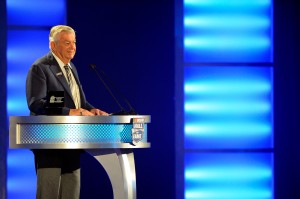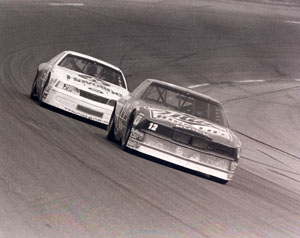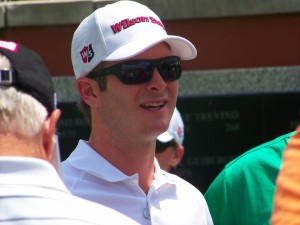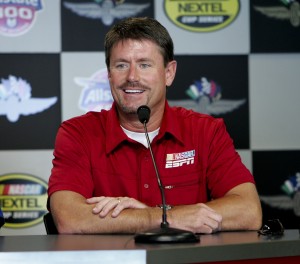
Bobby Allison’s Hall of Fame career was full of incredible highs like his three Daytona 500 victories and his 1983 Winston (now Sprint) Cup championship. But many still remember Allison for the tragic lows he experienced in 1992 when he lost his son Clifford to a practice session crash and in 1993 when he his son Davey was killed in a helicopter accident.
In this Inspiring Athletes interview, Allison talks about his early race days, how his faith helped him deal with the loss of his two sons, and why NASCAR is so influenced by the Christian faith:
Chad Bonham: How did you get into racing?
Bobby Allison: I’m from Miami and racing was starting to begin down there when I was a youngster. Out of high school at age 17, I got the opportunity to go to Wisconsin and live with my aunt and uncle and my cousins and go to work for Mercury (at Ford Motors) in the proving grounds. My mom was trying to get me away from racing. I got to Wisconsin in the summer and every town in Wisconsin had a racetrack it seemed like and they raced seven days and seven nights a week and sometimes twice on Saturday and twice on Sunday. I went to lots of races. I didn’t race there but I went to lots of races and watched and got a few heroes of my own along the way.
Bonham: How were you able to deal with losing your two sons so close together?

Allison: It was really tough. I had been hurt at Pocono and had a head injury as well as the physical injuries. I healed up from the physical injuries quickly and incredibly well, but my head injury gave me terrible memory loss and confusion. I would see somebody who had been a good friend and I wouldn’t know them. I was dealing with a lot of personal confusion and then our youngest son Clifford got killed. It was an incredible tragedy. I can’t even put it into perspective from my standpoint. I wasn’t mentally recovered enough to be able to deal with it like I could have had I not been injured at Pocono. It was so devastating to me. It caused me so much mental agony on a constant basis. Somebody would walk up and say something and I’d start crying. It was a terrible, terrible deal. I finally recovered from that a little bit and got to where I felt under control a little bit better. Davey began to ask me to travel with him to different events. I had been with Davey in New Hampshire the week before he died on Monday in the helicopter. When we lost Davey, it put me right back into such a feeling of being totally defeated. It was mental and physical pain that you can’t believe. The one thing that I could do is I could pray.
Bonham: What has NASCAR traditionally embraced expressions of faith and ministry at the track?
Allison: Most of these guys, from the lowest mechanic down the line up to the highest NASCAR official, have been aware of Christianity. They have had some recognition of Christianity in their life. They feel like this has helped from the beginning and its grown and grown. It’s continued to help people. Everybody supports it because the one thing we have in common is the love of Jesus Christ.
This is a just a small portion of a longer interview conducted with Bobby Allison for an upcoming Judson Press book called Faith in the Fast Lane set to release in January of 2014. This book chronicles NASCAR’s rich faith story and include additional commentary from legendary drivers such as Richard Petty, Ned Jarrett, Mark Martin, Bobby Labonte, Darrell Waltrip and Phil Parsons.

